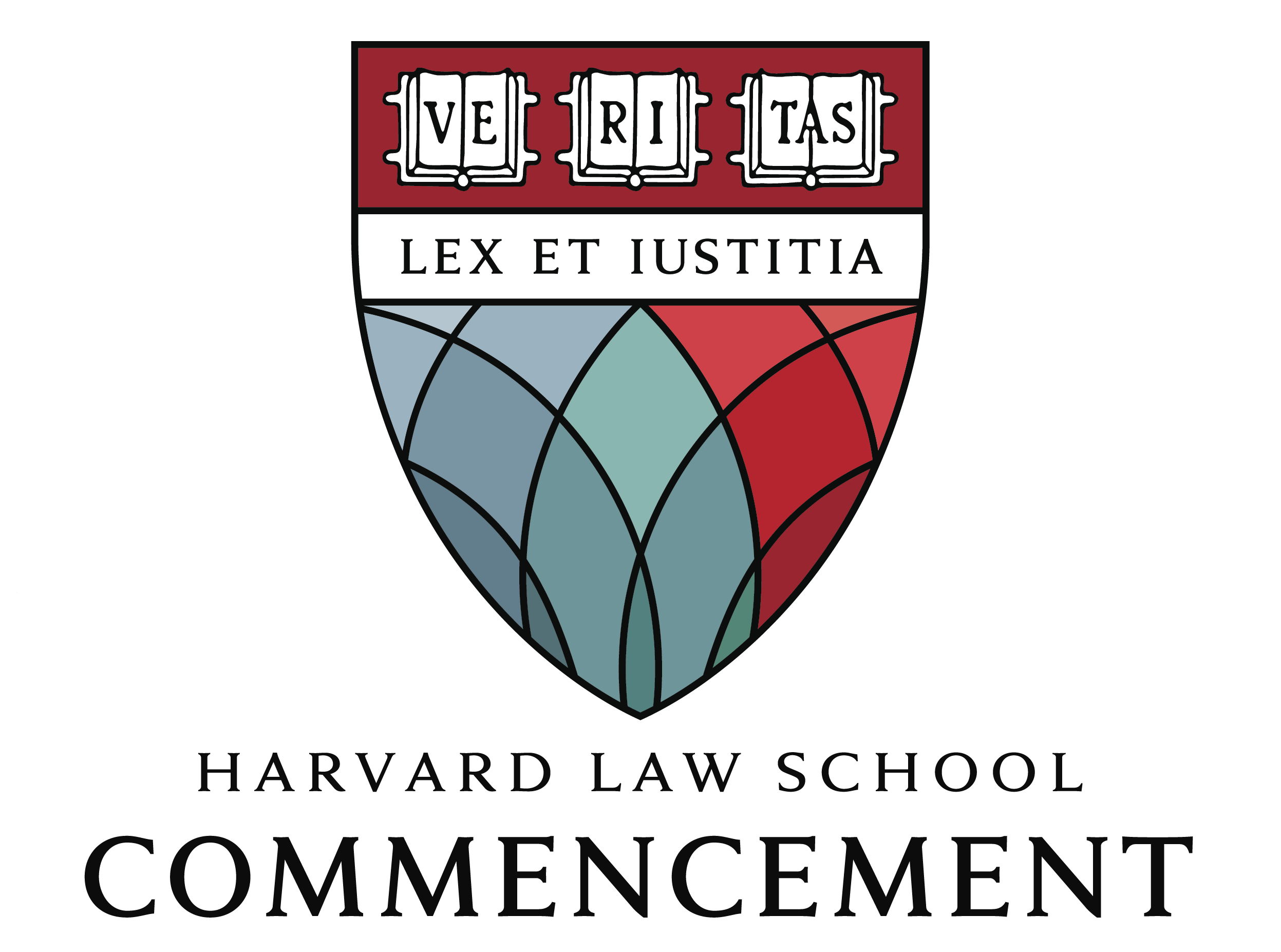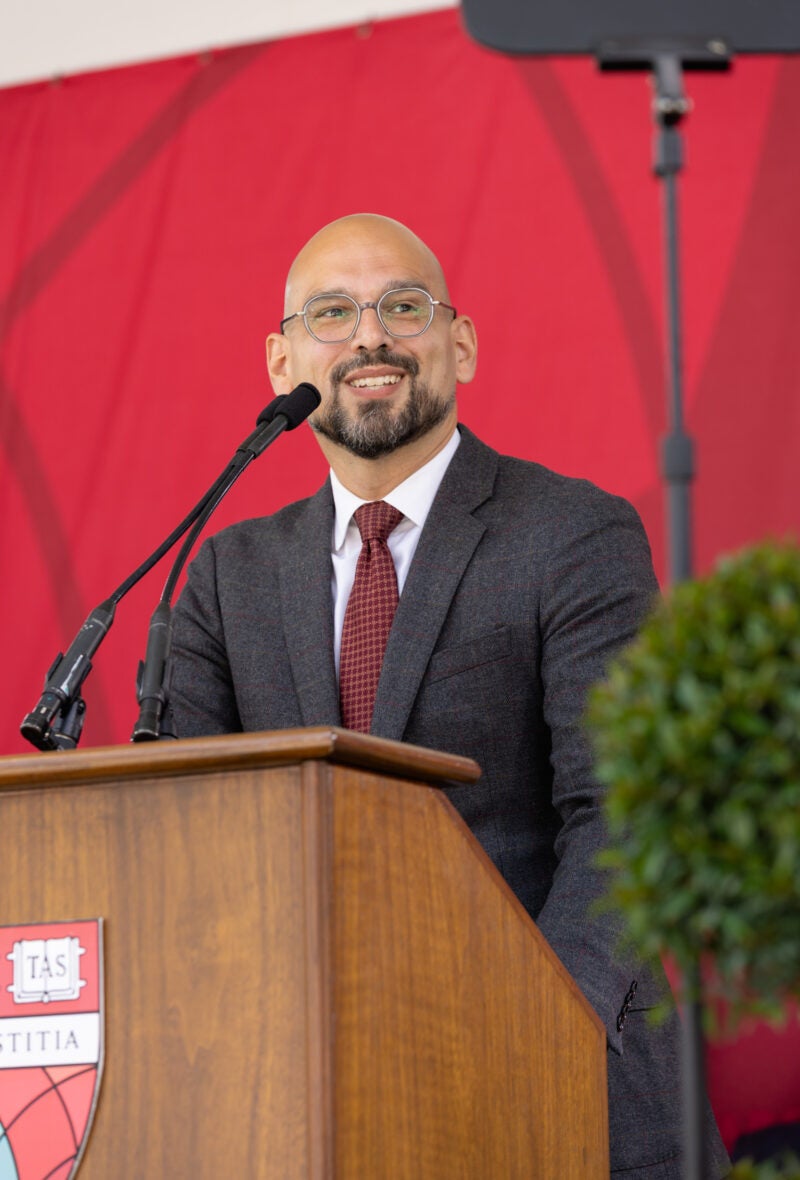The Class of 2025 selected Andrew Manuel Crespo ’08 to receive the prestigious Albert M. Sacks-Paul A. Freund Award for Teaching Excellence, which recognizes a faculty member each year for teaching ability, attentiveness to student concerns, and general contributions to student life at the law school. When Crespo accepted the award on Class Day, he expressed his appreciation for his students and all they have taught him.
Crespo told the audience of graduating students and guests on Holmes Field that receiving the award was one of the proudest moments of his life.
“I love teaching,” he said, “and that I get to do this as a living with all of you is one of the greatest gifts.”
Introducing Crespo, Peter Goeckner ’25 recalled how he had come to Harvard focused on improving education for young people and knowing “that a good teacher can make all the difference in a student’s life.” Goeckner called Crespo’s Criminal Procedure class “one of the best learning experiences I had at the school.”
In his remarks, Crespo said he felt especially honored to be receiving this recognition from this graduating class. No class has taught him more, he said, particularly about courage in a time of great challenge. Crespo suggested that this moment is when “moral courage” is particularly needed.
“There are a great many of your professors here,” Crespo said, “who worry that our country is teetering on the edge of authoritarianism. There are some of us, like me, who think we may be already there,” he said.
“We need to be in deep, real, human connection with people who will tell us when we risk going too far or when we’re missing something essential. That means, of course, we need friends who will disagree with us.”
Crespo, who teaches criminal law and procedure and serves as the executive faculty director of the Institute to End Mass Incarceration, highlighted recent federal government actions that he believes threaten both individuals and the country’s institutions, including Harvard. The goal of these moves, he said, was “to try to change the way that we teach, the questions we ask, and the answers we offer, from climate change to vaccines to the study of race and inequality in our country’s past and present.”
The Class of 2025, Crespo said, had also taught valuable lessons about tenacity. “You have used your voice and your talents to demand fairness when you have seen injustice.”
Crespo also spoke about the importance of building connections across difference, especially in difficult times. “That’s going to take humility, and it’s going to take some vulnerability,” he said. “We need to be in deep, real, human connection with people who will tell us when we risk going too far or when we’re missing something essential. That means, of course, we need friends who will disagree with us.”
“Building these human connections,” he said, “especially in times of conflict like these, when our guards are up, also requires some vulnerability, and this I am sorry to say, is not something lawyers are always good at.”
But Crespo said he was convinced that the risk was worth it, and in his closing remarks he himself took the plunge. He told students that, as he pondered how to say goodbye to a class that has meant so much to him, he recalled another goodbye he experienced in the autumn of the J.D. students’ first year at Harvard Law.
After he’d lost his beloved father and he was standing beside his grave, Crespo recounted, he found himself singing a few words of a song of farewell. Although he said that singing in public made him uncomfortable, he concluded his remarks by doing something that may be a first for a winner of the Sacks-Freund award.
Crespo sang a few of words of the song to the departing Class of 2025.

View full coverage from the festivities of the 2025 Class Day and Commencement Ceremonies at Harvard Law School
Want to stay up to date with Harvard Law Today? Sign up for our weekly newsletter.
